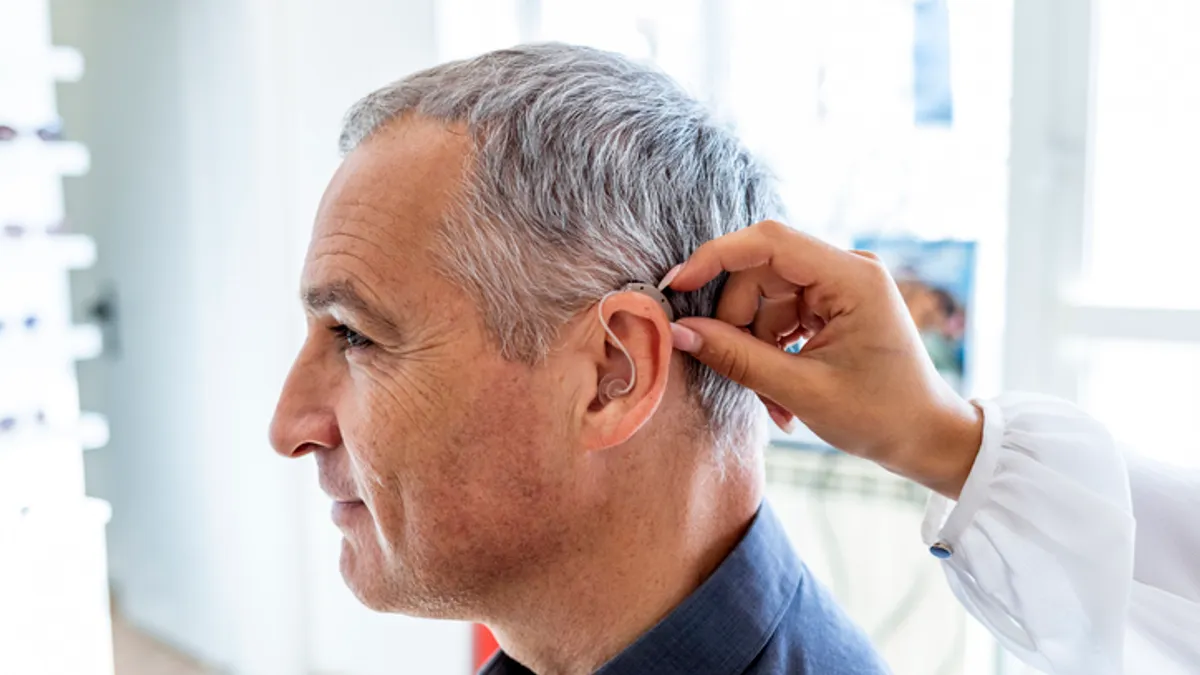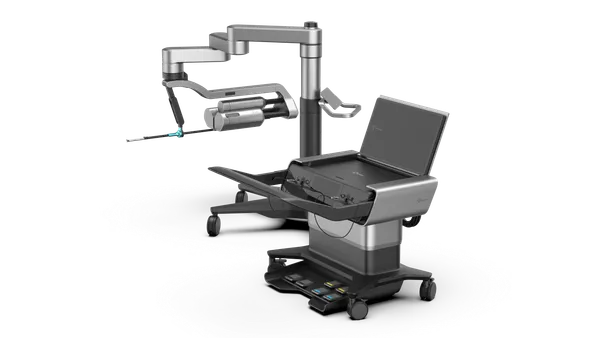Dive Brief:
- A randomized clinical trial has found treating hearing loss in cognitively healthy older adults has no effect on the rate of cognitive decline over three years.
- Writing in The Lancet, researchers funded by the U.S. National Institutes of Health reported that while the intervention was ineffective in the overall population, a prespecified sensitivity analysis showed a significant difference in older adults at increased risk for cognitive decline.
- Hearing intervention was linked to a 48% reduction in three-year cognitive change compared to the control group, an effect that the authors of an accompanying comment piece called “enormous” but also potentially “spurious.”
Dive Insight:
Hearing loss is associated with increased risk of accelerated cognitive decline and dementia. Longitudinal observational studies suggest wearing hearing aids mitigates the risk. The evidence led researchers to run a trial on the effect of hearing aids on cognition, randomizing 739 healthy volunteers and 238 people from an observational study of cardiovascular health to a hearing aid or control cohort.
After three years, a pooled analysis of the healthy volunteers and cardiovascular patients found giving a person audiological counseling and a hearing aid had no effect. Cognition scores in the hearing aid arm were almost identical to the results from the control cohort.
However, while the study missed its primary endpoint, it also generated evidence that hearing aids may be beneficial for cognition in some people. In the subpopulation of people from the cardiovascular study, the hearing intervention was associated with a 48% reduction in three-year cognitive change compared with the control group. Hearing aids had no effect on the healthy volunteers.
Participants from the cardiovascular study had more risk factors for dementia. Compared to the other participants in the trial, the cardiovascular patients were older, had lower baseline cognition scores and more often had diabetes or hypertension, smoked and lived alone.
In an accompanying comment piece, psychiatry researchers at the University College London cautioned that the 48% protective effect could be spurious and identified further data that could clarify the effect of hearing aids on cognition.
“We await trials on the effects of hearing aids on secondary outcomes including mood, independence, social network, and physical activity to elucidate potential mechanisms of action. Hearing aids might affect all these measures and improve motivation and communication about how best to manage other illnesses,” the researchers wrote.












